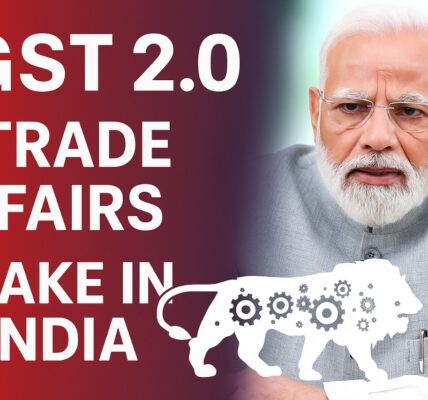
Zoho: The Indian Startup That Dared to Challenge Microsoft and Google
Introduction
In a world dominated by global giants such as Microsoft and Google, an Indian software company quietly rewrote the rules. Zoho Corporation began as a small effort to solve practical business problems and, over decades, grew into a global SaaS powerhouse. Led by Sridhar Vembu, Zoho is a rare example of a company that scaled to billions of dollars in value while staying privately owned and bootstrapped.
This post covers Zoho’s origin, products, global presence, employee strength, the ways it challenged major competitors, government recognition, and why its story matters for founders everywhere.
The Humble Beginnings of Zoho
Zoho’s journey began in 1996 under the name AdventNet Inc.. Founded by Sridhar Vembu (with early co-founders and team members), AdventNet initially built network management and IT infrastructure tools.
The company had roots in both the US and India — early operations connected Pleasanton (California) and Chennai.

As the internet and cloud computing took off in the 2000s, Sridhar and his team saw a different opportunity: businesses wanted online tools that were affordable, secure, and easy to manage. In response, the company pivoted to cloud-based SaaS products and gradually rebranded around the name Zoho, which had become popular for its online office suite and business apps.
Why the pivot mattered
The switch from network management to SaaS was a strategic bet: cheaper distribution, recurring revenue, and the ability to iterate quickly based on customer feedback. Over time, this pivot became the foundation for Zoho’s global product ecosystem.
Building a Cloud Empire — Without Outside Funding
Unlike most modern tech success stories, Zoho never relied on venture capital. The founders chose bootstrapping — growing the company from its own revenues and reinvesting profits for long-term product development. This independence gave Zoho freedom to make long-horizon choices, focus on profitability, and prioritize customer trust over the pressure of quarterly growth targets.
Rural-first hiring and Zoho Schools
One of Zoho’s most defining strategies was decentralizing hiring. The company created development centers in smaller towns and rural areas, and launched Zoho Schools of Learning to train local youth in software skills. This approach lowered hiring costs, created social impact, and opened a large pool of motivated talent.
Zoho’s Product Ecosystem — 55+ Business Apps
Zoho’s competitive advantage is its integrated ecosystem. Rather than being a single product company, Zoho offers an entire business operating system — apps that cover CRM, finance, HR, collaboration, marketing, analytics, and application development.
Major Zoho products (high-level)
- Zoho CRM — Sales automation, pipelines, and customer lifecycle management.
- Zoho Books — Cloud accounting and finance management for SMBs.
- Zoho Mail — Ad-free, secure business email (alternative to Gmail for business).
- Zoho Workplace — Email, document collaboration, chat and office tools (competes with Google Workspace).
- Zoho One — An all-in-one suite bundling 50+ apps into a single operational system.
- Zoho Creator — Low-code platform for building custom business apps.
- Zoho Desk, Zoho People, Zoho Projects, and more — covering support, HR, project management and collaboration.
This breadth allows Zoho to sell to startups, SMBs, and enterprises — from a single app subscription to the entire Zoho One stack. Pricing, integration, and a privacy-first stance make Zoho an attractive alternative to larger incumbents.
Zoho vs. Microsoft and Google — How a David Took on Goliaths
Zoho’s competitive story is not about outspending giants — it’s about solving customers’ core concerns better: cost, privacy, and local support.
Key competitive edges
- Pricing: Zoho’s plans are designed for affordability, especially for small and mid-sized businesses.
- Privacy: Zoho operates ad-free and does not monetise customer data with ads — a powerful differentiator versus some large providers.
- Integrated suite: Zoho One offers a tightly integrated set of apps at a price point that challenges both Microsoft 365 and Google Workspace.
- Local support: Regional teams and rural development centers mean better local language and context support for many customers.
Many organizations, including government departments and large Indian enterprises, have chosen Zoho for internal productivity and privacy reasons — signalling that Zoho can be a practical alternative to global incumbents.
Global Footprint & Numbers (2025 snapshot)
| Category | Details |
|---|---|
| Founded | 1996 (as AdventNet) |
| Founder & CEO | Sridhar Vembu |
| Employees | 15,000+ (global) |
| Products | 55+ SaaS applications |
| Customers / Users | 100+ million users across 190+ countries |
| Valuation | Estimated over $1 billion (₹8,000+ crore) |
The Human Side: Culture, Zoho Schools, and Rural Impact
Zoho’s leadership emphasizes people and community. Instead of hiring only from top-tier colleges, Zoho runs in-house training programs (Zoho Schools) that provide real-world skills and direct career paths into the company. This model created a new talent pipeline from smaller towns and villages and helped reduce urban migration.
Founder’s philosophy
Sridhar Vembu famously moved to rural Tamil Nadu and lives a low-profile life focused on community building. His message is clear: talent exists everywhere; opportunity does not. By investing in local infrastructure and training, Zoho created long-term social and economic value while maintaining a high level of engineering output.
Government Recognition and Collaborations
Zoho’s approach aligns with national initiatives like Atmanirbhar Bharat (self-reliant India). Government ministries, public sector units, and state departments have increasingly used Zoho’s tools for internal operations, citing data privacy, cost-effectiveness, and local support.
Zoho has also collaborated with educational programs and startup initiatives to promote digital adoption and skill development across India.
Why Zoho’s Story Matters for Founders
- Bootstrapped success: You can build global products without VC funding if you focus on product-market fit and profitability.
- People-first hiring: Invest in training and local talent to build loyal teams.
- Value over valuation: Long-term thinking beats short-term hype.
- Privacy as differentiator: In an era of data concerns, privacy-focused products attract trust-conscious customers.
Conclusion
Zoho is more than a company; it’s a blueprint for sustainable tech growth rooted in real social value. From its early AdventNet days to a full SaaS ecosystem used globally, Zoho proves that India can build world-class software that competes on price, privacy, and practicality.
“We don’t build for valuation — we build for value.” — Sridhar Vembu



